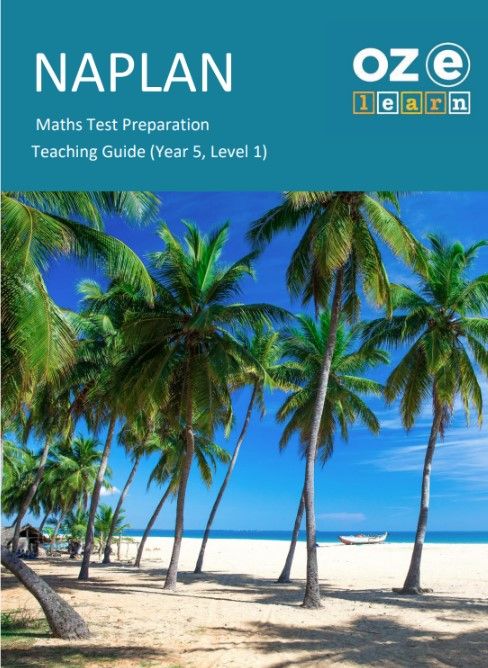NAPLAN Test Preparation: Numeracy – Year 5
Direct Instruction

Teaching Resources
Share this page:
Program Overview
The NAPLAN Year 5 Numeracy program is a program for Year 5 students. It aligns to the Australian Curriculum Mathematics Strand:
- Compare and order common unit fractions and locate and represent them on a number line. (ACMNA102)
- Investigate strategies to solve problems involving addition and subtraction of fractions with the same denominator. (ACMNA103)
- Solve problems involving multiplication of large numbers by one- or two-digit numbers using efficient mental and written strategies and appropriate digital technologies. (ACMNA100)
- Use efficient mental and written strategies and apply appropriate digital technologies to solve problems. (ACMNA291)
- Solve problems involving division by a one digit number, including those that result in a remainder. (ACMNA101)
- Find unknown quantities in number sentences involving multiplication and division and identify equivalent number sentences involving multiplication and division. (ACMNA121)
- Choose appropriate units of measurement for length, area, volume, capacity and mass. (ACMMG108)
- Calculate perimeter and area of rectangles using familiar metric units. (ACMMG109)
- Estimate, measure and compare angles using degrees. Construct angles using a protractor. (ACMMG112)
- Connect three-dimensional objects with their nets and other two-dimensional representations. (ACMMG111)
- Use a grid reference system to describe locations. Describe routes using landmarks and directional language. (ACMMG113)
- Describe translations, reflections and rotations of two-dimensional shapes. Identify line and rotational symmetries. (ACMMG114)
- Construct displays, including column graphs, dot plots and tables, appropriate for data type, with and without the use of digital technologies. (ACMSP119)
- Describe and interpret different data sets in context. (ACMSP120)
Learning Objectives
In Lessons 1 to 20, students learn about:
- pattern numbers
- word problems
- graphs
- fractions
- faces, vertices, edges of shapes
- area, perimeter, volume
- time word problems
- transformations (rotation, translation, reflection)
- angles
- probability
- symmetry.
Success Criteria
- Describe, interpret and continue number patterns.
- Use addition, subtraction, multiplication and division to solve word problems.
- Calculate time problems.
- Understand fractions.
- Interpret, create and analyse graphs.
- Identify symmetry of shapes and transformations of shapes.
- Calculate area, perimeter and volume.
- Calculate probability.
- Measure angles.
